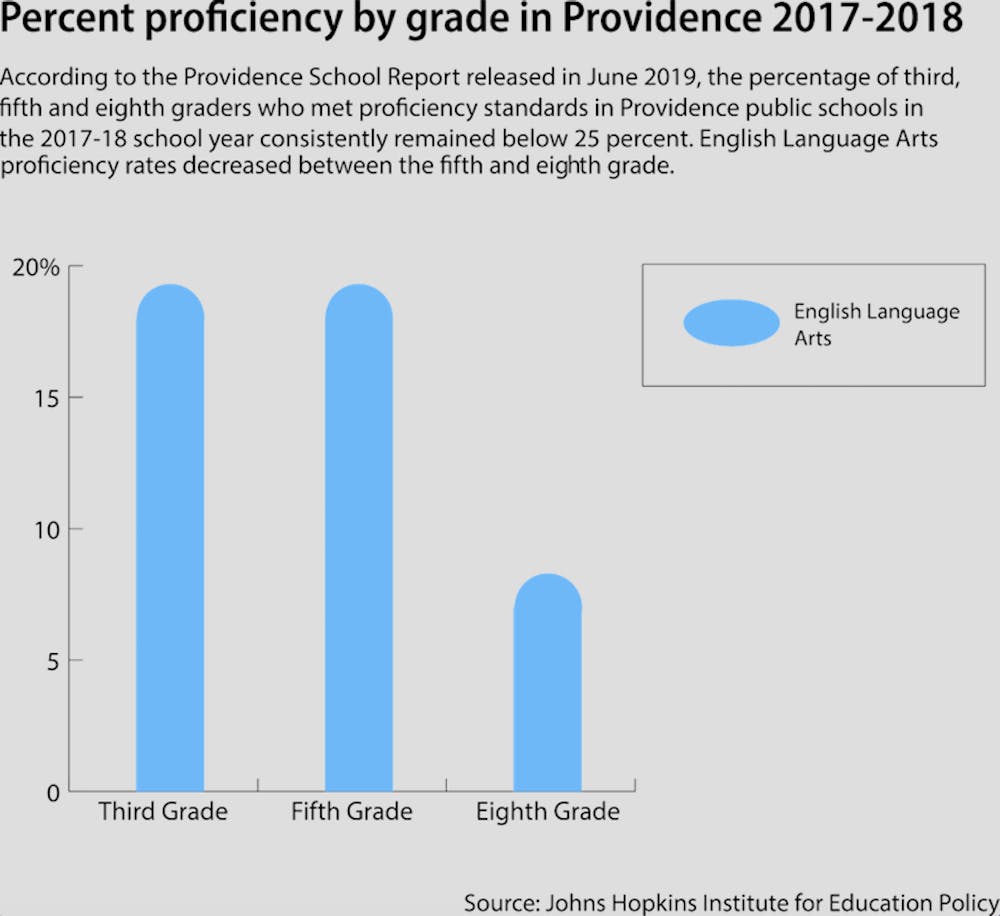The Rhode Island Department of Education has received a $20 million federal grant to improve children’s literacy rates.
The grant, awarded by the U.S. Department of Education earlier this month, will target readers from birth to grade 12 by focusing on improving curriculum quality.
Any traditional school district or charter school in the state is eligible to receive funds from the grant, and some pre-kindergarten private childcare centers may also be eligible. The state will prioritize the 11 school districts they deem most in need of funding, according to Meg Geoghegan, RIDE director of communications.
One of the grant’s main focuses is to target early stages of learning. RIDE aims to have 75 percent of R.I. third graders reading on grade level by 2025, according to Geoghegan.
The effort to increase literacy would start at the district level to make sure each one develops a high-quality curriculum tailored to its needs. Once they determine what material to include in their curriculums, the districts can then “establish a local literacy plan that is based on their data, and kind of know where they are going in the next few years,” Geoghegan said.
RIDE also intends to channel funds from the grant toward the development of teachers, parents and communities as educational resources, Geoghegan said. The grant will make it possible to hire new teachers and to provide current teachers with better professional training.
RIDE began applying for the grant before a searing Johns Hopkins report on the state of the Providence Public School District caused the state to initiate a takeover of the district.
“Providence would potentially benefit from the grant, but the grant application was submitted before the state takeover process began,” Geoghegan said. She also stressed that while the takeover only pertains to Providence public schools, this grant will apply to the entire state.
Kenneth Wong, professor of education policy, international and public affairs and political science, applauded the grant for focusing on early age literacy opportunities. Wong said that until third grade, students “learn to read — and from third grade and on, they read to learn. Once they develop reading skills, they will be able to learn in a tremendous way.”
Wong also said an emphasis on parent inclusion is essential to successful literacy development efforts. “Families have to be a partner in learning literacy, because learning does not end in a classroom. Students have to bring home some of the books to read. The district would have to engage the parents to set aside some time” to work at reading at home, Wong said.
Elizabeth Burke Bryant, executive director of non-profit R.I. KIDS COUNT, emphasized the scale of the grant and its potential to help meet literacy goals, especially for students who face greater challenges, like English language learners and children from less privileged backgrounds. “There are very wide and unacceptable gaps by race, ethnicity and income level that really need to be closed. So this grant is a really important set of resources to target literacy from that whole spectrum,” Bryant said.





